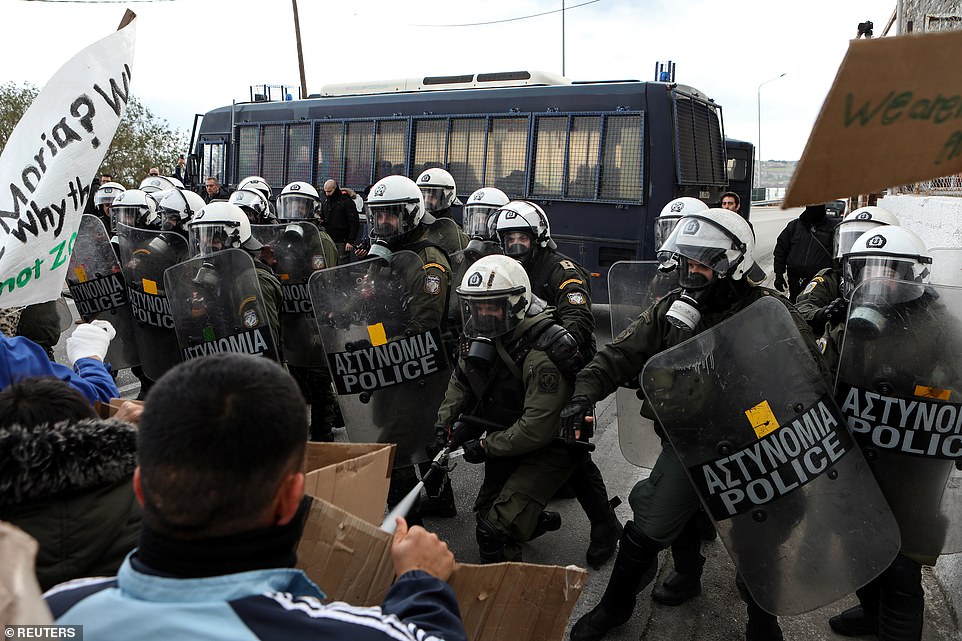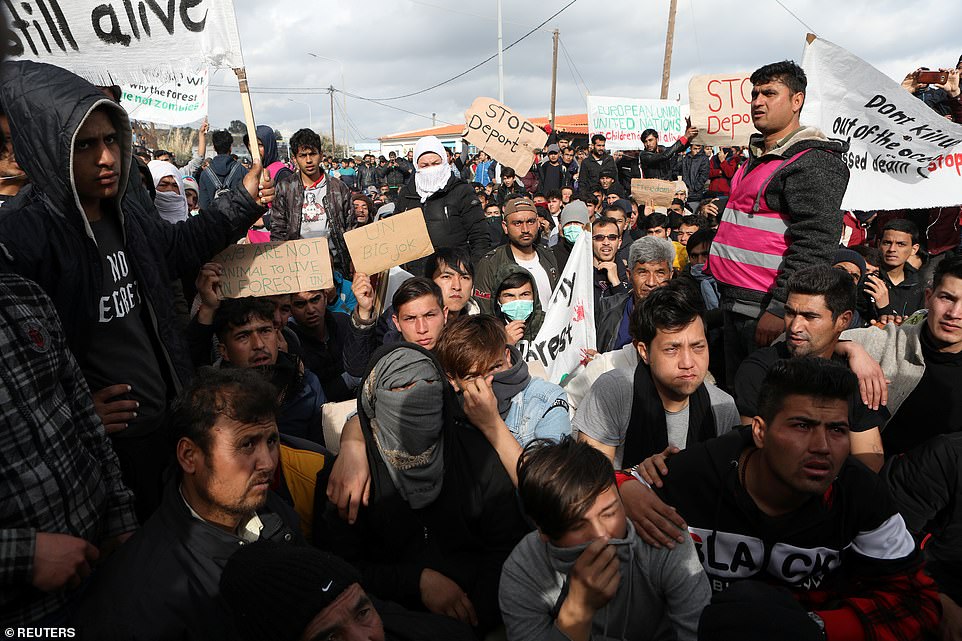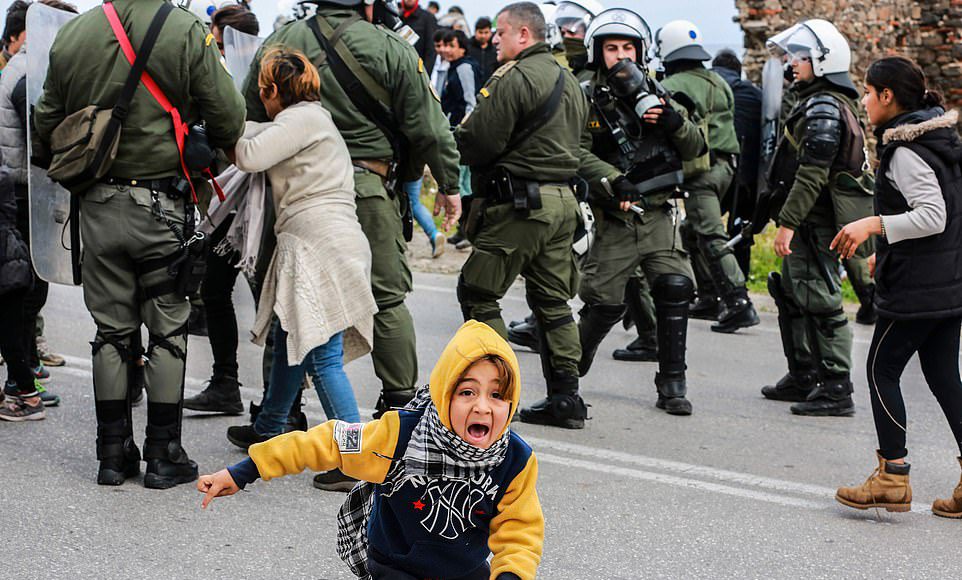- Tear gas fired by police at some 2,000 men and women who left refugee camp of Moria on the Greek island of Lesbos
- Protesters carried makeshift signs with the word ‘freedom’ to demonstrate against tougher new asylum rules
- They walked some 4.3 miles towards the port capital of Mytilene, but were blocked by police outside the town
- Over 40,000 asylum-seekers are currently crammed into camps on five Aegean Greek islands near Turkey
Brandishing makeshift signs with the word ‘freedom’, some 2,000 men and women walked out of the overpopulated camp of Moria to protest the new asylum laws.
Tougher asylum laws instilled by the new government that took over mid-2019 have meant many migrants, who have waited years for their asylum interviews, are being deported after their interviews.
Violence broke out near the Kara Tepe camp after hundreds of people marched from the island’s congested migrant camps to the city of Mytilene, according to a police official.
Aid groups have described living conditions in some of Greece’s island camps as appalling.
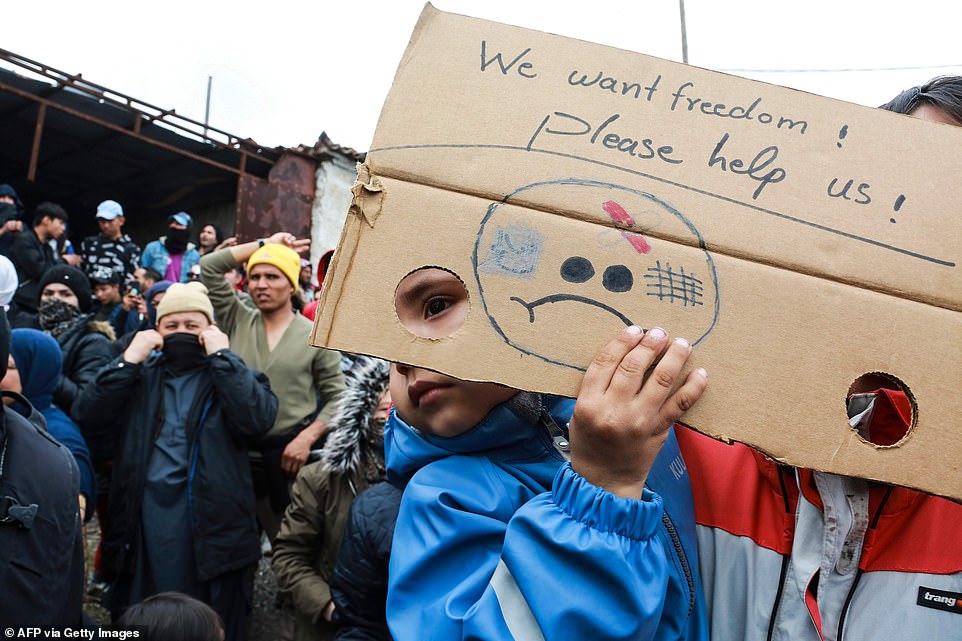
The protesters walked some 4.3 miles towards the port capital, Mytilene, but were blocked by police outside the town.
Some evaded a police cordon and crossed a slope to reach Mytilene, where a group tried to set up tents.
Boris Cheshirkov, Greece spokesman for the UN refugee agency, said in a statement: “A significant backlog of pending applications and serious delays in asylum procedures have been a major contributing factor to the dangerously overcrowded conditions we see on the islands.”
“Long waiting times are also contributing to the mental toll that people are facing,” he said.
After years of procedural delays, Greece faces a backlog of almost 90,000 asylum applications, Cheshirkov said.
The conservative government elected in July has announced plans to ‘decongest’ the islands, shut down existing camps and replace them with holding centres that will process new arrivals and people whose asylum applications have been rejected.
The centres that will close include the Moria camp on Lesvos, which was set up to accommodate 2,850 people but hosts at least five times that number.
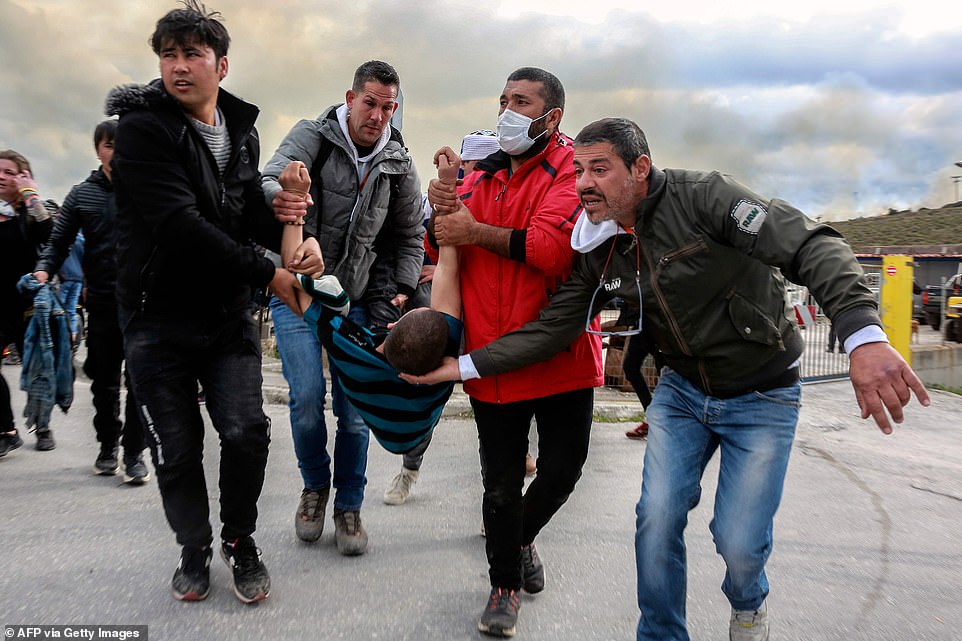
Last week, the government said it wants to install a floating barrier in the Aegean Sea, off Lesvos, to deter migrants arriving at its shores.
In 2019, Greece became the first port of entry for migrants and refugees entering Europe.
Last year, more than 74,000 refugees and migrants arrived in Greece, among them 3,500 children, according to the United Nations refugees agency UNHCR.
Most of them arrived on the islands Lesvos, Chios and Samos, crossing from Turkey.
The government has struggled to manage the influx, keeping many in overcrowded camps on the Aegean Greek islands near the Turkish coast.
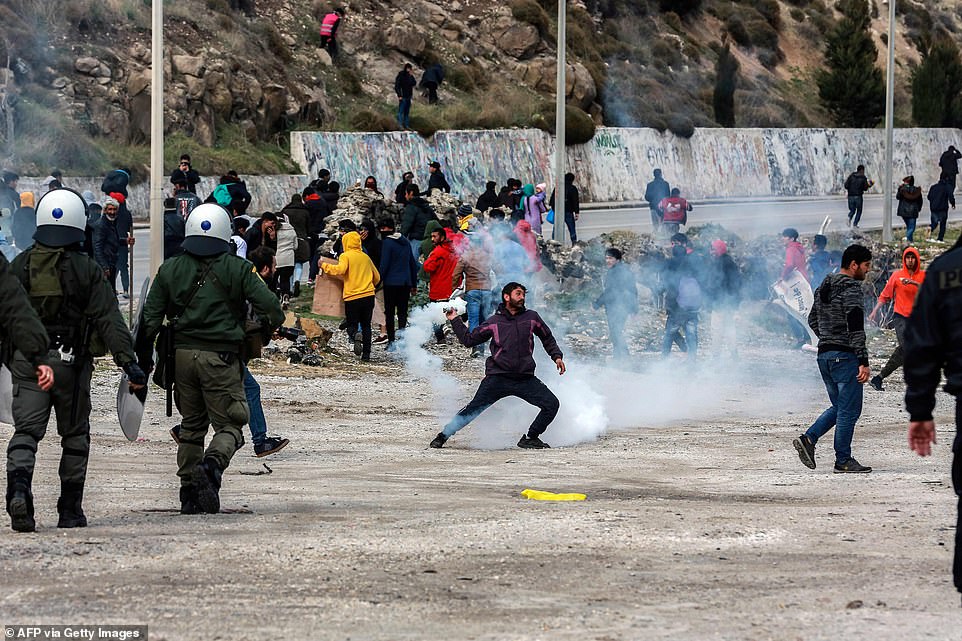
More than 40,000 asylum-seekers are currently crammed into camps on five islands, where the official capacity is for 6,200 people and in conditions repeatedly condemned by aid agencies.
The conservative government of Prime Minister Kyriakos Mitsotakis has toughened its approach to asylum-seekers and is trying to speed up the repatriation of people whose applications have been rejected.
At Moria, where over 19,000 people live in and outside a camp built for fewer than 3,000, many are housed in tents and makeshift shelters without access to power, heating, or hot water, Cheshirkov said.
“There aren’t enough latrines and showers and access to health is severely limited,” he added. “There are also frequent outbreaks of violence.”
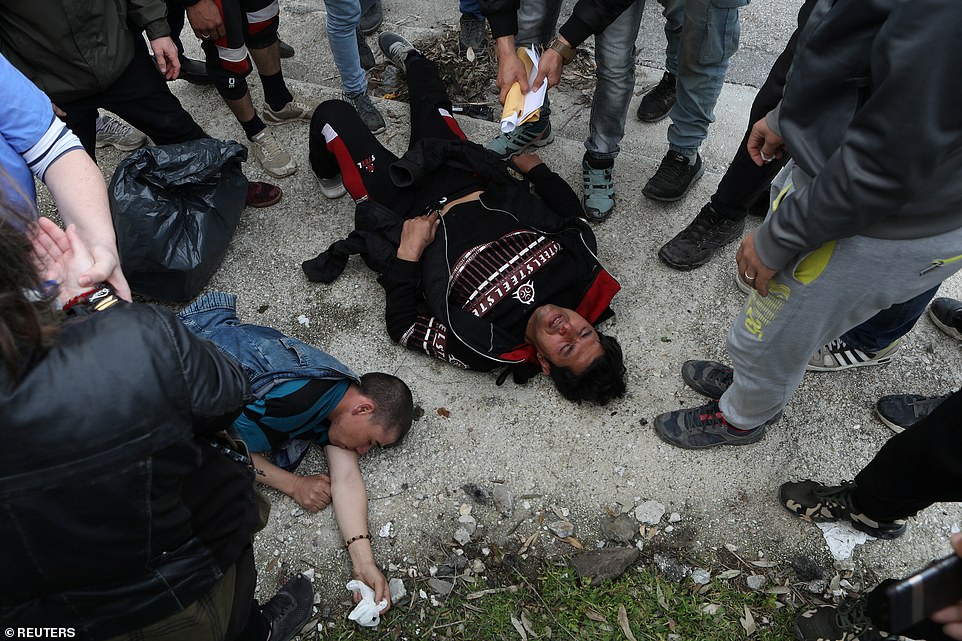
The new Greek minister for migration Notis Mitarachi, appointed just two weeks ago, has vowed to expel ‘on a weekly basis’ migrants whose asylum applications are rejected.
“Those not entitled to international protection will be rapidly returned to Turkey,” Mitarachi told Kathimerini daily on Sunday.
“We believe…this will send a loud and dissuasive message to human smugglers,” he said.
